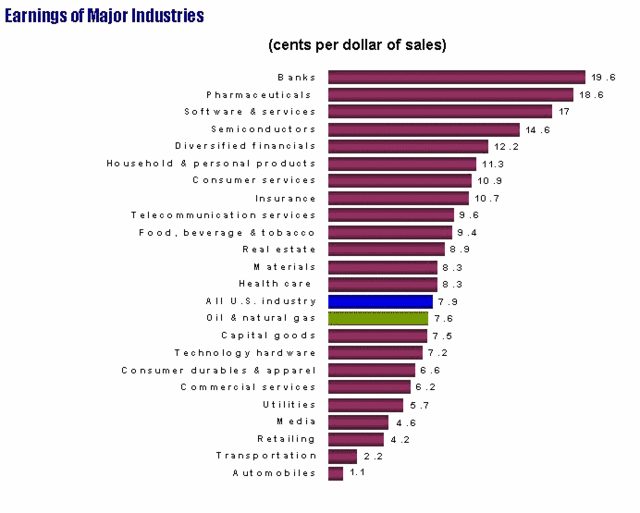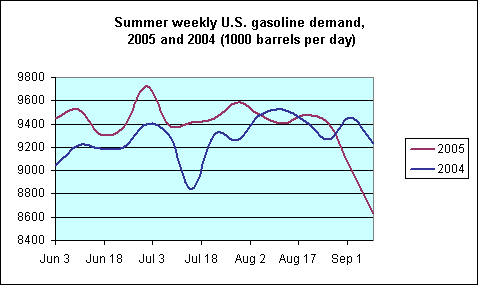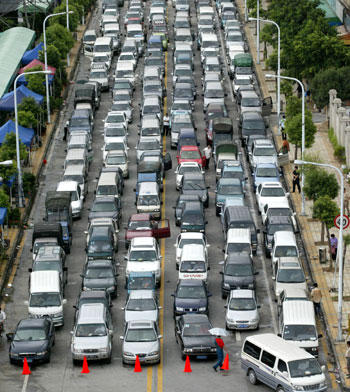OK, I will begin this post with what I guess is, for some, a damning admision: My company pays many of its employees minimum wage.
I believe that I have a very honorable relationship with my employees, but for many, particularly on the left, the fact that I pay minimum wage puts me at the approximate moral level of a forced labor camp gaurd. For those of you that feel that way, you might as well move on now because this post will just irritate you further.
I want to present four case studies from my own business as to what happens to workers and consumers when minimum wages go up. For the purpose of this post, I will leave out the philosophical argument of why voters or politicians should even have the right to interfere in the free decision-making between employer and employee, but I certainly addressed it here, in this post. Unfortunately, a large number of voters accept the argument that there is a power imbalance between employer and employee that needs to be moderated by measures like the minimum wage (folks who believe this obviously never have tried to attract and retain quality wokers). Many politicians support minimum wage measures, mainly because it is one of those measures, like protectionism, where the benefits (e.g. Joe got a raise) are much easier to identify than the costs (e.g. Mary lost her job).
Before I get into the case studies, it may be helpful to describe my workers, because in some ways their situation is unique. To run our campgrounds, we mainly employ retired people. Of my 500 workers, well over half are over 60 years old, more than 150 are over 70, some 25 or so are over 80 and a few are even over 90! Most are on social security and medicaire, and many have pensions and retirement health plans. A good number are disabled and have some sort of disability support. While they work slower, they make up for their low productivity in part by their friendliness with customers and their life experience.
Most of my employees travel the country in their RV. They take most of the year off, but many like to work over the summer to make a little money and to pay for their camping site. I give many of them a free or subsidized campsite, worth about $500+ a month, plus all their utilities and then pay them minimum wage for the hours they work. Many are thrilled with these terms - so many that I have a waiting list now of over 300 names of people who are looking for this type work. This list is currently growing by about 10 names a day.
There may be employers somewhere who have a power imbalance over their employees. Some days, I envy them. My employees most all have independent means of support. Further, they all have wheels on their houses, so they can and do pick up and leave if they aren't enjoying their job. And, if they don't like our company, there are thousands of other campground operators who are looking for help.
So why are so many people lining up for minimum wage jobs when lefties and progressives are telling them that they should not want those jobs? Here are some reasons:
- They value the amenities that come with the job, including living for free in a beautiful outdoor setting, something it is impossible to value under minimum wage laws
- They have other means of support, so the money is incidental. In fact, I get more inquiries from employees asking me to reduce their hours so as not to mess up their social security or diabiloity payments as I do people asking for more pay
- They get to work with their spouse as a team. There are not many employers out there that let a husband and wife split up work between them any way they want or even work together - can you imagine such a situation on a GM assembly plant?
- They would have a hard time getting hired by anyone else. Very few employers will hire new workers in their sixities, and certainly not older than that. Older workers can be slower and less productive. For $12 an hour, I would have to hire younger workers too, but at minimum wage, I can afford the lower productivity of older workers and gain the benefit of their experience and trustworthiness.
This last point help set the stage for our cases. I love hiring older workers at $5.15 an hour, and they love the job and line up for it. But what happens when I have to pay these less productive workers $6.00 an hour? What about $7.50? What about at $12.00 an hour? Here are some examples of what happens:
Case 1: The jobs just go away
Washington State has one of the higher minimum wages in the country, at $7.35 an hour. What makes the Washington minimum particularly hard to manage is the fact that it has a built-in escalator, such that it rises each year based on an inflation index (as you might imagine, since labor is a major component of most goods and services, this creates a positive feedback loop).
We run a number of campgrounds in Washington under concession contract from the US Forest Service. Most of these campgrounds are both small and very isolated, and are therefore labor intensive. Given local market conditions, it is increasingly difficult to raise fees fast enough to keep up with rising labor rates (as well as labor-linked costs such as workers comp and unemployment) since we are competing against larger private campgrounds that are designed more efficiently and may be closer to local labor. We have effectively given up trying to make money in this area, and will very likely not rebid the contract when it expires. Given USFS experience on other similar contracts in the area, there is a good chance that no private company will bid for the contract, and the campgrounds will revert to USFS operation. In this case, many will likely be closed, and instead of having minimum wage jobs, there will be no jobs left at all.
Case 2: The jobs get outsourced to contractors
In a number of locations, we have been forced by rising minimum wages and associated costs (particulalry workers comp.) to switch some of our cleaning and landscaping duties from our live on-site employees to local contractors. These contractors may pay their workers more than minimum wage, but the workers are often twice as productive as ours, yielding a cost savings for us. When minimum wages are $5.15 an hour, these contractors can't compete with our own workers, but when minimum wages rise over $7.00, as they are across the west coast, this option starts to become attractive.
Case 3: The jobs get automated away
One of the more frustrating situations we have is one government concesion contract where the government has continued to insist that the Service Contract Act (SCA) applies. Like the Davis-Bacon act, the SCA sets minimum wages that contractors have to pay to employees when serving the government (for example, on a contract to clean the bathrooms in a goverment office building). These rates, while ostensibly the market prevailing wages, are in almost every case FAR higher than what a private company would have to pay in the market to get good employees. By specific Labor Department regulation, the SCA typically does not apply to concession contracts (I won't bore you with the details, but more in this series here or email me if you need help in a similar situation, I have been forced to become an expert).
Anyway, on this particular concession we have to pay our living-on-site workers based on the SCA. This means, for example, that someone who sits in a parking lot booth collecting parking fees must be paid something like $12.50 an hour, which translates to a bit over $15.60 when you factor in FICA, SUI and workers comp. Over 2000 hours a year that is $31,200 a year.
A fully automated fee collection machine (which actually does more than the attendent, since it takes credit and debit cards as well as makes change for cash) costs $23,000. Plus, the machine never will sue over wrongful termination, never will discriminate against or sexually harass a customer, never will steal, and never will fail to show up for work.
What would you do? I would prefer to have the person there, and if we put the machine in I will still probably staff the booth on busy summer weekends to help customers out, but over 5 years the machine may save us over $100,000.
Case 4: Prices go up to customers
Last election, Floridians voted themselves a minimum wage increase of $1.00, and worse, voted that the wage will increase each year by a cost of living factor. As a result, on the May 2 effective date, our costs will go up by about 15% in managing the swim areas and campgrounds in that area. Since this is well over our profit margin, prices will also go up by the same amount on the same day. This is unfortunate, because it tends to be lower income people who most enjoy the recreation opportunities we offer, since historically we have been able to keep our costs, and therefore the pricing, so much lower than outrageously expensive attractions like Disney and Universal Studios.
Final Thoughts
I'm not going to cry that my business is doomed by minimum wage increases, because it is not. As you can see above, we have many options for dealing with these changes. What I fear may be doomed, though, is the special relationship our company has always had with older, retired workers. For now, the business model is OK, but there is a point, somewhere between about $7.00 and hour and $10.00 an hour, where rising minimum wages will push us to look for other ways to staff our parks rather other than our traditional use of live-on-site retirees. And that would be sad for everyone.
For more on the topic, Powerline has a nice article today on minimum wage increase proposals in Minnesota. It is astounding to me that people still want to believe the notion that minimum wages don't affect employment. Just look at France and Germany for living proof. Or, consider any other commodity in the market. If the government set a price floor for gasolene, say at $3.00 a gallon, would anyone out there argue that people wouldn't use less gas? But when we try to raise the price floor on labor, the media and politicians with a straight face try to argue that businesses won't use less labor. Or, for the reverse, look at the experience with natural gas and airline travel - the government removed price floors on these commodities in the lates 70s / early 80s and look at how demand has skyrocketed. (update: Powerline has a second post on the topic here)
For even more good reading, Cafe Hayek is always a good source for defense of free market economics, including this good post on French work week laws. More on minimum wage here.



